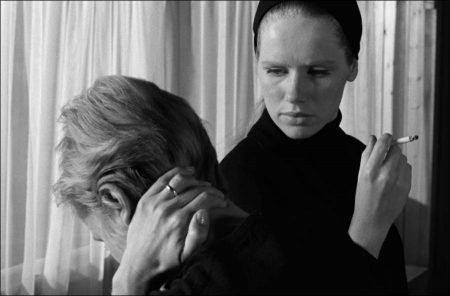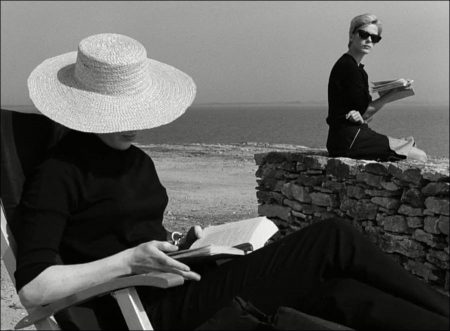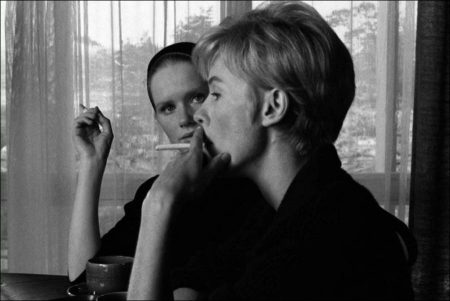Persona movie storyline. Swedish actress Elisabet Vogler, while on stage during a performance of Elektra, becomes mute. The day following, she is in a near catatonic state. The doctors in charge of her case diagnose no medical reason that would cause these disabilities. A nurse named Alma is assigned to be Elisabet’s caretaker, she who believes that there is some sort of inner strength that Elisabet possesses to choose not to speak.
Since Elisabet is not allowed visits by either her husband or her son, the doctor provides her own secluded beach side summer house as a respite for Elisabet and Alma. To break the silence during the respite, Alma speaks continually to Elisabet, ultimately about personal details of her life. Elisabet responds to Alma’s talking, and Alma uses these situations as her own therapy sessions. Alma admires Elisabet and wants to be like her. As the women spend more time alone together, Alma learns more about her patient. But Alma also begins a transformation, which she now knowingly tries to stop because of those things she has learned about Elisabet.
Persona is a 1966 Swedish psychological drama film,[n 1] written and directed by Ingmar Bergman and starring Bibi Andersson and Liv Ullmann. The story revolves around a young nurse named Alma (Andersson) and her patient, well-known stage actress Elisabet Vogler (Ullmann), who has suddenly stopped speaking. They move to a cottage, where Alma cares for Elisabet, confides in her and begins having trouble distinguishing herself from her patient.
Characterized by elements of psychological horror, Persona has been the subject of much critical analysis, interpretation and debate. The film’s exploration of duality, insanity and personal identity has been interpreted as reflecting the Jungian theory of persona and dealing with issues related to filmmaking, vampire mythology, lesbianism, motherhood, abortion and other subjects. The experimental style of its prologue and storytelling has also been noted. The enigmatic film has been called the Mount Everest of cinematic analysis; according to film historian Peter Cowie, “Everything one says about Persona may be contradicted; the opposite will also be true”.
Bergman wrote Persona with Ullmann and Andersson in mind for the lead roles and the idea of exploring their identities, and shot the film in Stockholm and Fårö in 1965. In production, the filmmakers experimented with effects, using smoke and a mirror to frame one scene and combining the lead characters’ faces in post-production for one shot. Andersson defended a sexually explicit monologue in the screenplay, and rewrote portions of it.
When first released, Persona was edited because of its controversial subject matter. It received positive reviews, with Swedish media coining the word Person(a)kult to describe its enthusiastic admirers. It won Best Film at the 4th Guldbagge Awards, and was Sweden’s entry for the Academy Award for Best Foreign Language Film. The censored content was reinstated in English-language restorations in 2001. Many critics consider Persona one of the greatest films ever made, and it was ranked the fifth-best in Sight & Sound’s 1972 poll and 17th in 2012.
Persona (1966)
Directed by: Ingmar Bergman
Starring: Bibi Andersson, Liv Ullmann, Margaretha Krook, Gunnar Björnstrand
Screenplay by: Ingmar Bergman
Production Design by: Bibi Lindström
Cinematography by: Sven Nykvist
Film Editing by: Ulla Ryghe
Costume Design by: Mago
Makeup Department: Tina Johansson, Börje Lundh
Music by: Lars Johan Werle
MPAA Rating: None.
Distributed by: AB Svensk Filmindustri
Release Date: August 31, 1966
Views: 434



